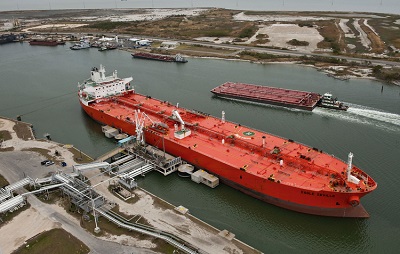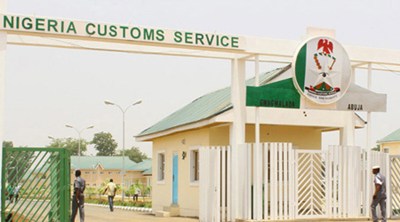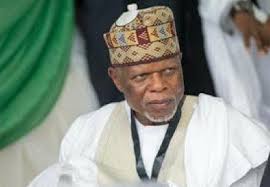ON THE SPOT MANAGER
Managing Dredging Effects On Shoreline Communities
By Oyeniyi Iwakun
Following approval by the federal government for the dredging of the Escravos-Chanomi/Ogbe-Ijoh down to Warri Port, Delta State, some locals in the river line communities have begun fresh agitations with threats to derail the plan.
The Ijaw, Ilaje and Itsekiri of about 50 communities in the Chanomi creeks and those who reside along and around Ogbe-Ijoh axis premised their agitations on the acclamation that they would be adversely impacted by the proposed dredging which has birthed apprehension among the residents over possible fear of the loss of their means of livelihood and displacement from their ancestral homes.
The group in a petition signed by its solicitor and coordinator, Dr. Clarkson Aribogha to the Transportation Minister, Rt. Hon. Rotimi Amaechi said the affected communities should be notified of the modalities to be applied citing the heightened anxiety among the beleaguered riverine dwellers who are yet to recover from the hardship, and lugubrious memories of what they experienced in the 1980s when a similar dredging was carried out even as they criticized the survey, mapping and the sounding activities, allegedly done secretly without their notice, demanding that they ought to be in the picture when the Environment Impact Assessment (EIA) activity was being carried out.
Explaining the extent of damage the affected communities would experience, Dr. Aribogha pleaded with government to provide an unbiased, fair and equitable mutual relationship with the various communities by paying them adequate compensation due to negative effect of the dredging while urging the project’s consultants and contractors to be aware of their corporate social responsibilities to the host communities in the course of carrying out the dredging operations.
This of course demands a very sound diplomatic approach to bring both government and the residents onboard. However, the major issue here is to x-ray the intention of government on the project as a sine quo non to managing the problem. It is then important to construe to what dredging entails.
Dredging according to the National Oceanic and Atmospheric Administration, U.S. Department of Commerce is the act of removing silt and other material from the bottom of bodies of water. Or simply put; Dredging is the removal of sediments and debris from the bottom of lakes, rivers, harbors, and other water bodies.
As sand and silt washes downstream, sedimentation gradually fill channels and harbors. So this material must be periodically removed via a process known as dredging. It is a routine necessity in waterways around the world because sedimentation; the natural process of sand and silt washing downstream and gradually fills channels and harbors. Therefore, dredging is often focused on maintaining or increasing the depth of navigation channels, anchorages, or berthing areas to ensure the safe passage of boats and ships. Vessels require a certain amount of water in order to float and not touch bottom. This water depth continues to increase over time as larger and larger ships are deployed. Since massive ships carry the bulk of the goods imported into the country, dredging plays a pivotal role in the nation’s economy.
Aside the above, dredging is also performed to reduce the exposure of fish, wildlife, and people to contaminants and to prevent their spread to other areas of the water body. This environmental dredging is often necessary because sediments in and around cities and industrial areas are frequently contaminated with a variety of pollutants. These pollutants are introduced to waterways from point sources such as sewer overflows, municipal and industrial discharges, and spills; or may be introduced from nonpoint sources such as surface runoff and atmospheric deposition.
Speaking recently with MMS Plus, the Chairman of Nigeria’s Ports Consultative Council (PCC) Otunba Kunle Folarin argued that the exercise often comes with some adverse effects even as he urged government to take cognizance of the environmental effects of dredging which had led to the end of several shoreline businesses and communities across the nation.
While admonishing the government to take a critical look at the consequence of several environmental issues ranging from ballast water control in the marine environment, to gas emission, field emission and other toxic wastes, Otunba Folarin decried the docility of Nigerian Maritime Administration and Safety Agency (NIMASA) about ballast water and the toxic waste, noting that there is a department to cater for the marine environment at the agency.
He said “The Nigerian government should understand that issues like dredging costs the nation in terms of the environment. What is the shoreline protection policy of the government to protect the livelihood and existence of people in such areas? Most of the villages around the locations that have been dredged seize to exist. Where are the environmental policies? There should be a scorecard on marine environment”.
It is therefore important for the Federal Government to carry the shoreline communities along as events progress and sensitize them on the benefits of the exercise, and how challenges the exercise would occasion can be effectively managed.
Adequate compensations should be paid to the communities that will be affected during and after the dredging.
Residents should also show commitments, understanding and support to the government, considering the benefits accruable to the project when successful.





